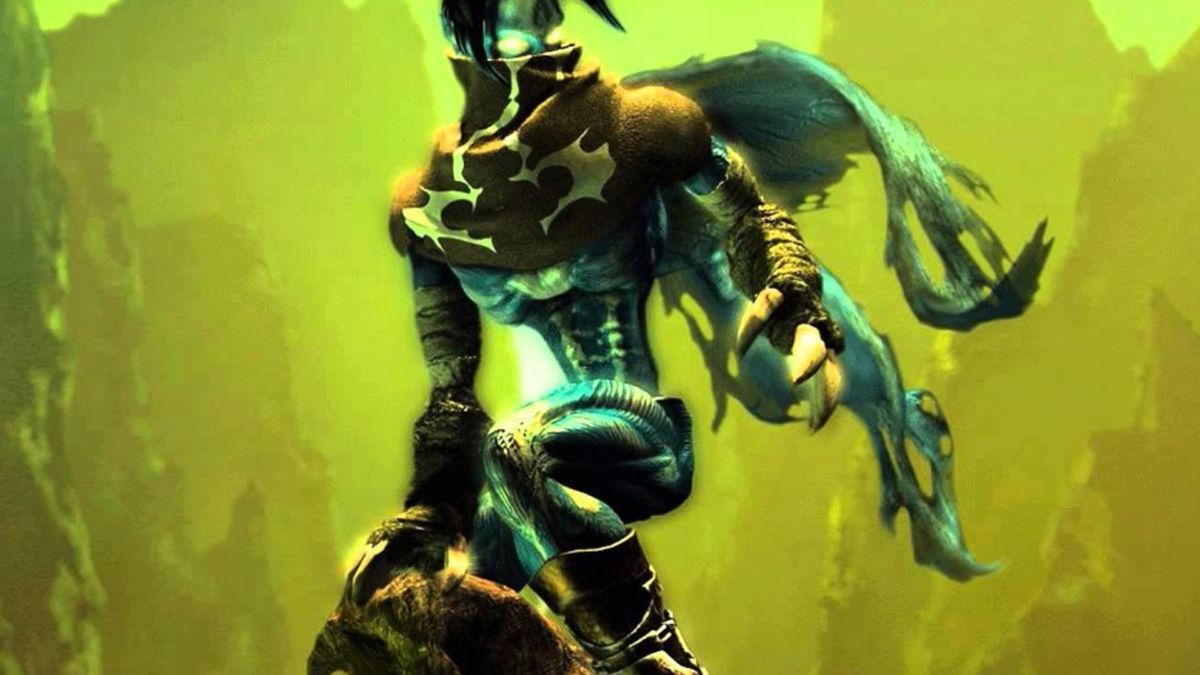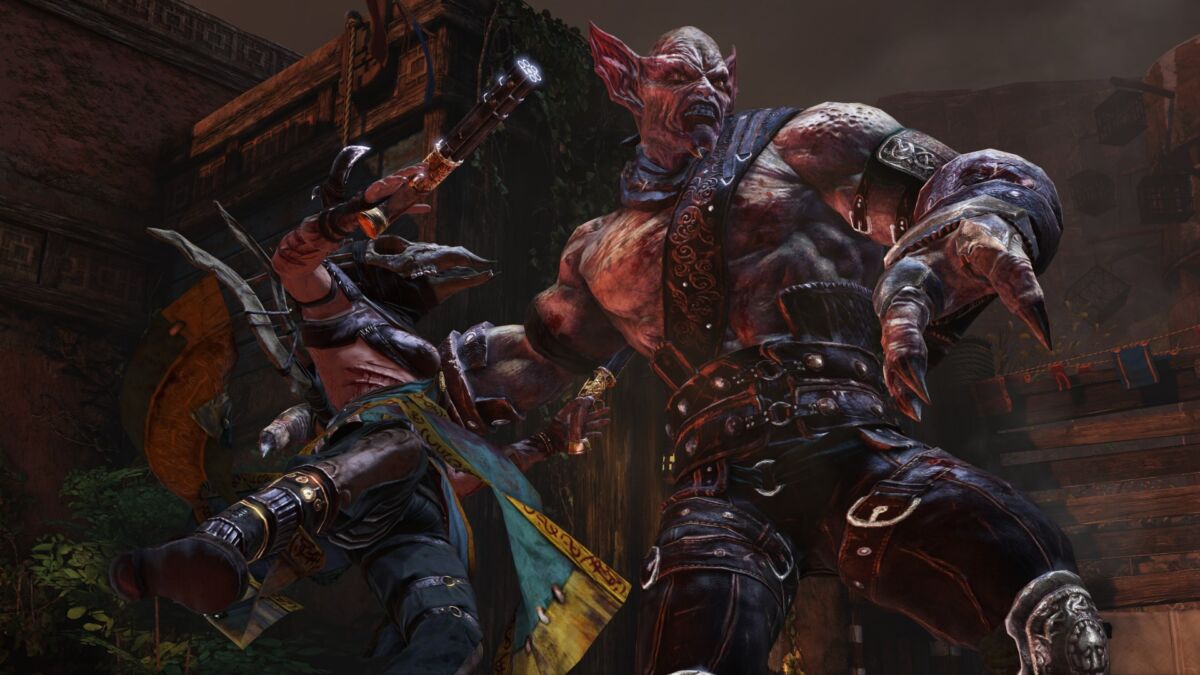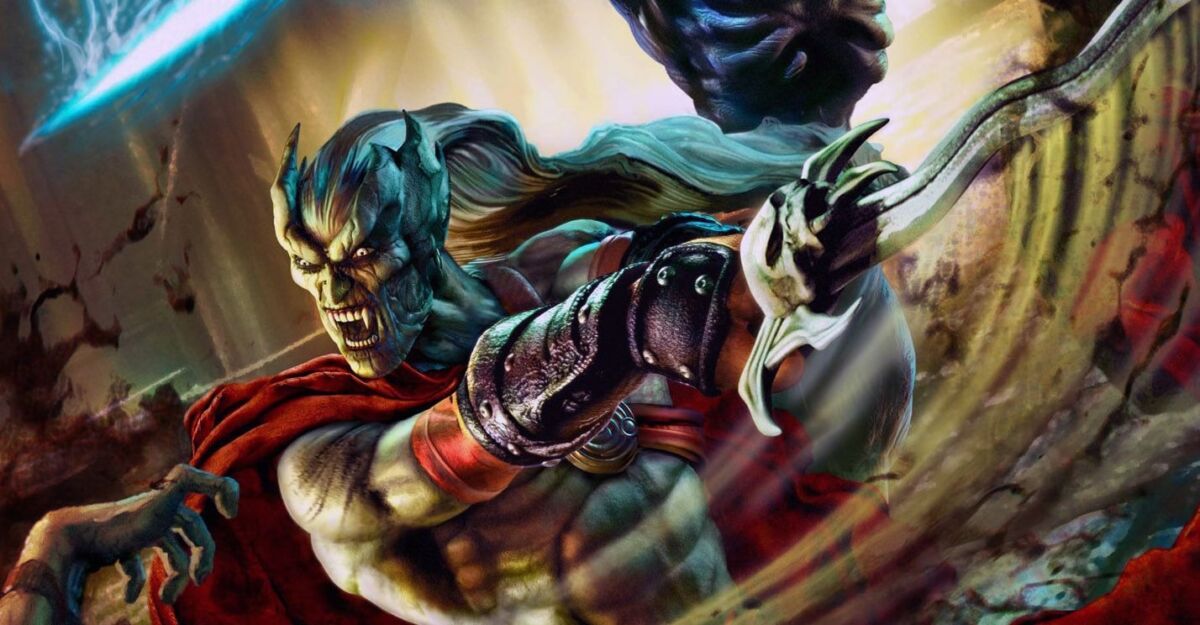3D narrative focused action adventure games might have become a trend for PlayStation’s line-up of exclusives, but if we were to look back through the history of the console, you’d find that it’s not exactly a new formula for success. There’s several PlayStation games over the years that have been created in that genre, but perhaps none of them are quite as iconic as the Legacy of Kain series.
Beginning life on the original PlayStation, but with a history that also includes the original Xbox, Gamecube, the SEGA Dreamcast and PC, the Legacy of Kain was a relatively short lived series that boasts both a tumultuous development story and a, for lack of a better word, legacy that’s still being felt to this day. The question we’re asking is: will we ever see a new Legacy of Kain game?
The Legacy of Kain History

The Legacy of Kain series spans five games which launched between November 1996 and November 2003. Five games over the space of seven years is a pretty impressive turn-around for a series that isn’t an annual release sports game, but it’s a story that’s not without its own issues.
The original game, Blood Omen: Legacy of Kain, was developed as a partnership between the publisher, Crystal Dynamics, and the developer Silicon Knights, who boast a company history worthy of its own series of retrospective articles. Blood Omen was devised by Silicon Knights President Denis Dyack and art director/writer Ken McCulloch as a proposal called The Pillars of Nosgoth.
Silicon Knights were pitching multiple ideas at the time, including one that would go on to become Too Human (again, worth its own weight in articles), but Crystal Dynamics felt that the pitch for Blood Omen: Legacy of Kain had the most potential. Lyle Hall, a key producer for Blood Omen, had grand plans for the game: “To me it was obvious this game deserved a Zelda-style take on a vampire action RPG, and it immediately struck a chord with Denis. We were convinced we could truly evolve the genre.”
Blood Omen would launch in 1996 on the PS1, with a PC port launching a year later, and reviewers at the time were blown away by the game’s blend of core gameplay and storytelling, something that was practically unheard of at the time in gaming. Things were looking rosy between Crystal Dynamics and Silicon Knights, but unfortunately that didn’t last. Within a year, the two were engaged in a legal battle for the rights to the series.
The dispute between the two was eventually settled privately, with the result being that Crystal Dynamics could continue the development on their Legacy of Kain follow-up, Soul Reaver, along with other derivative works in the future, so long as they properly credited original developers Silicon Knights.
This is where the story, at least as fair as the game is concerned, gets complicated. The development of Soul Reaver began in 1997, alongside Blood Omen 2, the sequel to the original game. Blood Omen 2 would once again see players take on the role of the titular Kain in an action-RPG formula, while the Soul Reaver games would focus on a wraith known as Raziel, who’s seeking to take down Kain. The gameplay was described as more akin to Tomb Raider, with action to be found but a more enhanced focus on platforming and puzzle solving.
The Soul Reaver series takes place hundreds of years in the future from the events of the original Blood Omen, with Blood Omen 2 seeking to bridge the gap between the two games. However, Blood Omen 2 also takes place in an alternate reality created by the events of Soul Reaver 2. Essentially, Blood Omen 2 was in development at the same time as the predecessor to the game that allows the story of BO2 to make sense. You with me so far?
All three games were considered decent hits, leading Crystal Dynamics and Eidos to create Legacy of Kain: Defiance, basically the equivalent of the series’ Endgame. Defiance was the first game in the series to allow players to play as both Kain and Raziel, with the story following both characters and their respective paths separately.
Where’s Legacy of Kain At Now?

Unfortunately, Defiance would prove to be the last Legacy of Kain game to see the light of day, rumoured to have sold somewhere between 500,000 and one million copies. This was apparently deemed somewhat of a commercial failure by publishers Eidos, who moved on to other projects, chief among them being Tomb Raider: Legend. Amy Hennig, one of the creative forces behind Legacy of Kain after the move to Crystal Dynamics, left for Naughty Dog in 2004, where she’d go on to blaze her own legendary path through the gaming industry.
Despite Defiance being the last Legacy of Kain game ever released, that doesn’t mean there hasn’t been a concerted effort from multiple developers to try and bring the series back. It was revealed that Eidos and Ritual Entertainment had plans to collaborate on the development of Legacy of Kain: The Dark Prophecy back in 2004, but the development ultimately fell through.
In 2009, Eidos was purchased by Square Enix and became Square Enix Europe, and it would appear that at this time they got to work on the development of a new Legacy of Kain game, titled Dead Sun. Dead Sun would be developed by Climax Studios, with a multiplayer companion game developed by Psyonix, the team now responsible for Rocket League. Somehow, Dead Sun probably wouldn’t have featured Kain and Raziel playing car football for eternity.
Unfortunately, it was confirmed that Dead Sun was canned back in 2012, with Square Enix community manager George Kelion stating: “I can confirm that Dead Sun was a project which had been in development – but which was cancelled. I know it’s disappointing to hear about these things out of context, and whilst some of the details released are accurate – some details are not. You know game projects can be cancelled for a variety of different reasons and I know it’s very hard to tell from images and info alone, but in the end LOK: Dead Sun just wasn’t the right game, at the right time… but you’ll have to take me at my word on that, I’m afraid.”
The multiplayer portion would live on, though briefly, through Nosgoth, named after the fictional location featured in the series. Nosgoth was a multiplayer-only game developed similarly to a MOBA that saw humans take on vampires in an asymmetrical multiplayer game. Vampires would rely on melee attacks and mobility to kill humans, while humans resorted to superior firepower.
A lot of miscommunication arose regarding the creation and early concept of Nosgoth, with many suggesting that it was simply Dead Sun retrofitted into a multiplayer game, but Kelion confirmed that the plan was for Nosgoth to serve as a companion game to Dead Sun: “I can categorically confirm that Nosgoth was a separate game from the beginning and is very much a unique game in its own right. It was related to the single-player game in terms of a shared art direction, but was always set in an entirely different time period and features different mechanics, characters, levels and gameplay. It isn’t and never was just a multiplayer version of the single-player game.”
Nosgoth entered open beta in January of 2015, with Psyonix and Square Enix confirming a plan to exit the beta stage reportedly being set in place around March 2016. However, Nosgoth was canned about a month later, with a statement on the game’s forum page stating “its audience hasn’t grown enough to sustain ongoing operations”. Square Enix would add: “Any future Legacy of Kain project will be considered independently of Nosgoth and on the merits of the proposals alone.”
Servers for Nosgoth were pulled offline on May 31st, 2016, with any purchases made after March 1st being refunded to the players. The forums were even taken offline in June, practically erasing most traces of Nosgoth for good. Despite the game’s failure, both Square Enix and Psynoic have experienced great success elsewhere, so perhaps it was best to let Nosgoth die. It’s hard to imagine a vampire multiplayer game based on a noted single-player franchise being as successful as “rocket-powered car footie”.
Will Legacy of Kain Ever Return?

Well, the thing about vampires is, they’re pretty hard to kill. Since the late-2000s onwards, vampires have been very fashionable creatures, thanks in no small part to the success of Twilight and shows like True Blood and The Vampire Diaries. It feels like the gaming industry was a bit slower to catch up on this trend, but games like Vampyr, Resident Evil Village (and the big lady specifically) and the upcoming Vampire: The Masquerade – Bloodlines 2 show there’s a market for a bit of casual vampirism.
On top of that, the desire for remakes and reboots in gaming has only intensified in recent years, and both Square Enix and Crystal Dynamics are no strangers to this. Square received tonnes of success in 2020 with FF7 Remake, and they look to recapture that again with the PS5 re-release, while Crystal Dynamics have overseen two separate Tomb Raider reboots. 2005’s Legend, the project that Crystal Dynamics worked on after Defiance, was a reboot from the disastrous Angel of Darkness, while 2012’s more realistic approach was a second reboot for the series.
The question is whether or not Square Enix and Crystal Dynamics feel like it’s worth retreading old ground. The two companies are currently still working together, primarily on the Tomb Raider series and, more recently, Marvel’s Avengers, which seemingly landed to a critical reception best described as a wet fart. As a live service game with multiple proposed expansions, including a Black Panther themed DLC, Avengers will be high on Crystal Dynamics’ priority list for a long time.
For their part, Square Enix and Crystal Dynamics have been pretty open about the plans, and more specifically the lack thereof, regarding the Legacy of Kain series. Senior CD producer Michael Brinker stated in 2015 that it’d be a 50/50 chance of seeing the series return on the eighth generation. Nosgoth might have been the game to do it, in another universe at least, but we’ve now reached the ninth generation of consoles and a new Legacy of Kain never came to pass.
Square Enix’s director of indie publishing, Phil Elliott, has also stated on multiple occasions that there’s nothing going on with the Legacy of Kain series. In an interview with GameByte in 2017, he confirmed that the company had no plans to create a new game, but that developers could pitch through the Square Enix Collective indie publishing service. In April 2019, he reiterated on Twitter that no companies had pitched to work on the series, but they’re open to suggestions.
The Legacy of Kain series is one of the most iconic franchises from the PS1/PS2 era of video games, and one that many would fondly remember. Amy Hennig herself has still got a lot of love for the game, posting on Twitter in 2019 to celebrate the game’s 20th anniversary. She’s even gone on record in an interview with Gamasutra to declare Soul Reaver her greatest accomplishment: “I’m actually really proud of that game still; I mean if somebody said…what is the best game you’ve designed, I’d probably say Soul Reaver. I felt like it was the purest expression of story and gameplay being the same thing.”
As for if we’d see a new game in the series? The most likely option would probably be some kind of remake, probably of Soul Reaver more so than Blood Omen. Again, remakes of old games are big business right now, and it’s reasonable to assume that many would stake their own mother in the heart for a new or updated take on Soul Reaver. If we can get a MediEvil remake, I’m sure someone could convince Bluepoint to give Soul Reaver a shiny coat of paint.
READ MORE: Will We Ever See A New Onimusha Game?
Some of the coverage you find on Cultured Vultures contains affiliate links, which provide us with small commissions based on purchases made from visiting our site.
